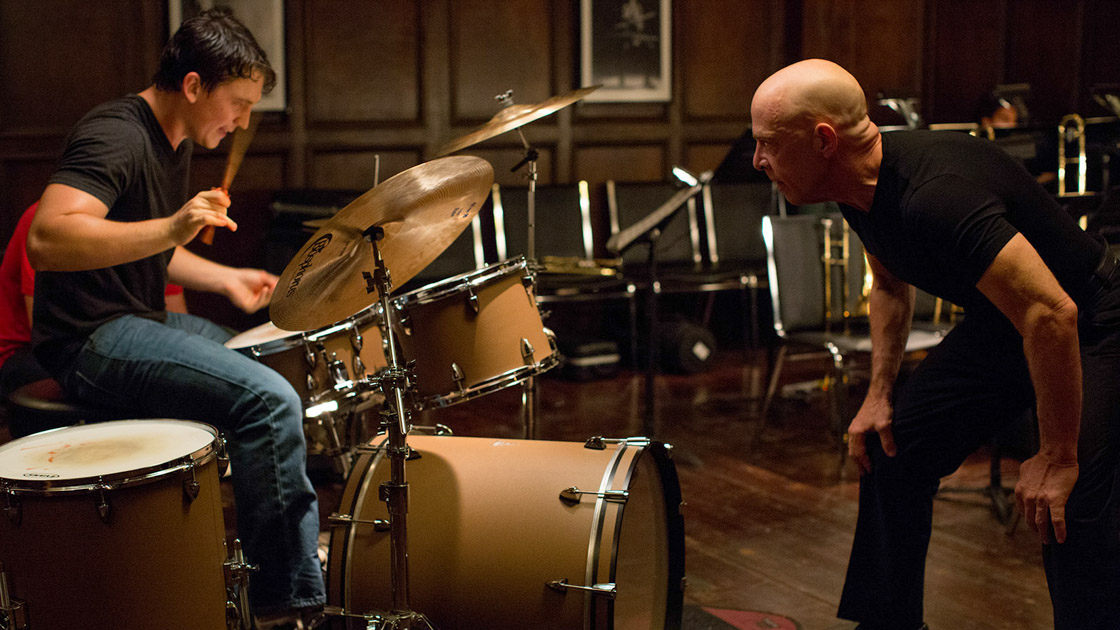 Back to selection
Back to selection
Whiplash | Director Damien Chazelle

Attention, our audience’s and our own — it’s a valued commodity these days. We struggle to command our audience’s attention, for them to discover our work and then, once they’ve discovered it, to actually focus on it. Meanwhile, we struggle to focus our own attention, to fight our society’s weapons of mass distraction so we can not just see our work to completion but fully discover the meanings within it. What role does attention play in your work? Can you discuss an instance where you thought about some aspect of attention when it came to your film?
Making Whiplash was really about a single challenge: how do you make an audience as scared for a musician about to perform as they would be for a cop about to enter a shoot-out, or a soldier about to step onto a battlefield? Obviously, it’s ridiculous: the latter are life-or-death situations, while the worst that can happen to the musician is some embarrassment, or a scolding, or a few boos.
But if you go inside the head of any really top-level musician — or top-level athlete, or top-level performer of any stripe — you’ll see that, to him or her, that upcoming performance is life-or-death. The top-level musician convinces him or herself that to miss a note or to drift off-tempo is the equivalent of costing lives.
At first glance, it’s an absurd way of thinking: you could make a comedy out of it. But I really wanted to put an audience inside the mind-set. That meant that the audience’s attention had to be glued to the slightest possible slip-up in a drummer’s tempo, or the slightest wave of a conductor’s finger — just as it would be to the fuse on a bomb.
It’s about hyper-awareness — so we tried to make the filmmaking reflect that. Focus on all the details this hypothetical anxious musician would focus on: the beads of sweat on faces, the bloodied blisters on palms, the sounds of footsteps, metronomes, ticking clocks… Cut the movie to a drummer’s rhythm — wide shot to extreme-close-up, rat-a-tat editing patterns, keep the tempo surging. Feel the silences between performances, then make the music as ferocious as gunfire. In short, the same tools someone making a war movie or a gangster movie would use.
At the same time, we didn’t want to go too stylized. We wanted to keep the movie grounded and physical. Almost everything in the movie either happened to me as a musician, or has happened to other musicians I know.
It was that kind of familiarity with what we were shooting that gave me hope we could pull this off. That we could make an audience feel both the dread and the exhilaration that are part of this world — and that, basically, we could make a thriller about music.
[PREMIERE SCREENING: January 16 at 6:00 pm -Eccles Theatre, Park City]
